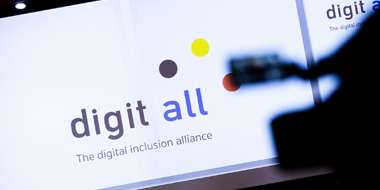Data & AI
The importance of asking the right questions for record systems in the public sector
02/07/2021 | Written by: Vincent Hoek
Categorized: Data & AI | Government
Share this post:
Document handling is a fundamental part of any organization, including the public sector. However, the public sector faces a unique set of challenges that could be helped by the private sector simply asking the right questions.
Challenges in the public sector
While there is some overlap between the challenges regarding document handling found in the private and public sectors, some are unique to the public sector. These challenges include:
- Legacy and fragmented systems which make it difficult to implement a cohesive document handling strategy across the entire organization.
- Right to information requests make it necessary for employees to be able to find the right information quickly and efficiently.
- Data regulations concerning documents need to be complied with for privacy and security reasons.
- Citizens expect their requests to be followed up correctly and in a timely manner.
- Employees require good access to the documentation they are authorized to use so they can do their work correctly and promptly. There are often multiple users with the same access rights, and these rights can change as employee’s role changes within the organization.
- Documentation gathering in different formats before it is evaluated for relevance and storing. This can include digitalizing documentation in analog formats.
- Ensuring the security of all stored documentation.
For more information on these challenges, read our blog on smarter data handling in the public sector for better information access and citizen experiences.
Document handling in the public sector
Smarter document handling systems that incorporate automation and AI could help the public sector to manage their document handling systems successfully and smoothly. Even though the solution to their document handling challenges is clear, there are still two elements holding the sector back.
Firstly, long ordering cycles make it difficult for the public sector to request the best possible for their solution that is still relevant when it is installed. Often the requested technology has undergone several iterations and improvements before it is implemented, but the solution can’t be updated for legal and contractual reasons leaving the public sector organization using outdated technology even when it has just been installed.
Secondly, as civil servants frequently spend their entire career within the public sector, very few have the right knowledge and experience to know what is possible from a technological perspective. Furthermore, they often find it difficult to formulate what their organization needs to cover its current and future requirements.
How can the private sector help the public sector improve?
Like the public sector, technology and IT service organizations have a social responsibility to help their customers. This means delivering the best possible technological solutions, starting with the private sector organizations asking their public sector customers the right questions. Instead of asking “what do you want?”, they need to investigate the problem that the public sector organization needs to solve to meet the requirements of today and the future.
The right questions to ask include: How will this document handling solution fit into the organization’s larger data management strategy? What does data governance look like for the organization? What do the employees need to do their job properly? What types of identity management systems does the organization use to ensure only authorized employees have access to each piece of data? What documentation does the organization have to handle? How does the organization ensure relevance before storing it?
Of course, if any of the basics – for example, data management strategy, data governance, or identity management systems – are missing, these should be implemented along with the document handling system.
By acting as more of a consultant and partner, rather than a simple supplier, private sector organizations make the difference for the private sector and Dutch society.
Interested to test your idea with us in a collaborative way?
Get in touch with our MVP team >

Enterprise Architect @ IIR UBR
IBM, together with 30 organizations, signs the Digital Inclusion Charter
“I personally believe that inclusion is a basic human right and should be part of the DNA of every leader. Since a long time, inclusion is one of the core values of IBM. The Digital Inclusion Alliance is for me a great initiative, where we can turn our values into action. We’re all in this […]
What is human-centred AI and why is it important?
Artificial Intelligence (AI) has the potential to solve many of the most difficult problems of today and tomorrow, impacting every aspect of our lives. Most people are likely to agree that AI should be used to solve problems and make (all) humans more prosperous and healthier. Actually, achieving this is easier said than done, […]
Dutch Ministry of Defense signs contract for modern and flexible IT
State Secretary Barbara Visser of Defense signed a contract with IBM, on behalf of the market consortium Athena (IBM/Atos/ Unica) to start in 2021 with the realization of a renewed, future-proof IT infrastructure. Focus will be on the IT infrastructure-parts that have the most added value for operational actions. The Ministry of Defense service […]


